| Chinese Films |
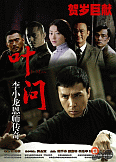
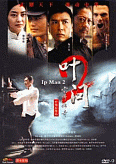

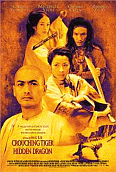
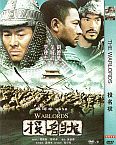
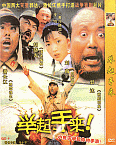

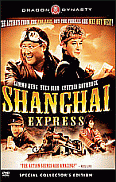




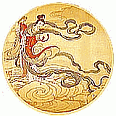
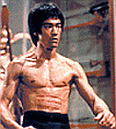
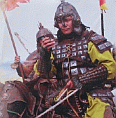
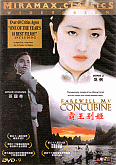
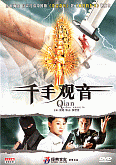
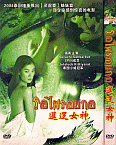
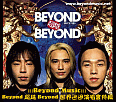


|
| Search Links |




|
| Chinese Opera |
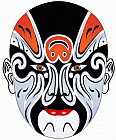
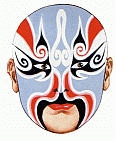
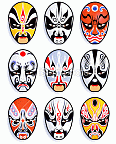
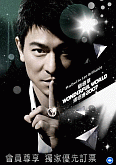
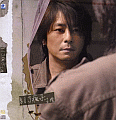







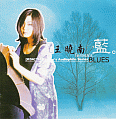
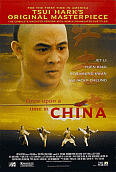

















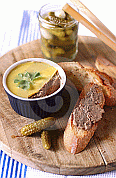


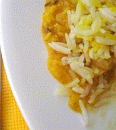


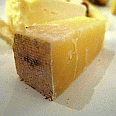
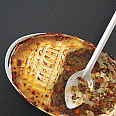

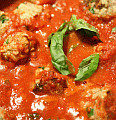



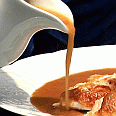


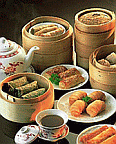
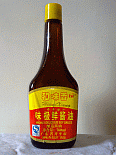
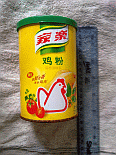
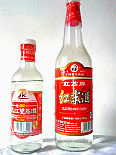
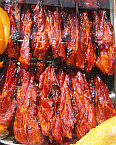












|
|
| Chinese
Literature |
Chinese Books,
Poetry and Prose |
|
|
Chinese literature is rich and
spans millennia reaching peaks of excellence during
the Tang, Song and Ming Empires.
Literature is highly revered by all Chinese people,
with many books and poems transformed into other arts
such as Chinese Operatic productions and modern day
films.
During this brief introduction we will introduce you
to The Four Great Books of Chinese literature. Please
do not confuse these with the Confusian 'The Four Books
and The Five Classics', which are famous historical
and education works such as the I-Ching. Please find
that page by clicking here
Books
Chinese refer to these as the Four Classics, although
technically there are actually five books but one is
banned:
Dream of the
Red Chamber - 红楼梦 or Hong Lou Meng
This famous novel is also sometimes referred to as 'A
Dream of Red Mansions', or by another name, 'The Story
of the Stone' 石头记.
"Chamber" is sometimes
translated as "mansion" because of the scale
of the Chinese word "樓", literally "Red
chamber dream". "Red tower" or "red
chamber" is an idiom for the sheltered chambers
where the daughters of wealthy families lived.
This is perhaps the most highly revered of all the great
classical works and is often portrayed via Chinese Opera.
More recently it has found many variations in film and
TV, often being used as the basis of a modern or period
drama.
Cultured Chinese people often employ quotations from
the book to elucidate a point, drawing meaning from
its use within the context of the writing.
It was composed sometime in the middle of the 18th century
during the Qing Dynasty. It is a masterpiece of Chinese
vernacular literature and is generally acknowledged
to be the pinnacle of classical Chinese novels.
Red Chamber is believed to be semi-autobiographical,
mirroring the fortunes of author Cao Xueqin's own family.
As the author details in the first chapter, it is intended
to be a memorial to the women he knew in his youth:
friends, relatives and servants. The novel is remarkable
not only for its huge cast of characters and psychological
scope, but also for its precise and detailed observation
of the life and social structures typical of 18th-century
Chinese aristocracy.
Plot Summary
The novel provides a detailed, episodic record of the
two branches of the wealthy and aristocratic Jia (賈)
clan — the Rongguo House (榮國府) and the Ningguo House
(寧國府) — who reside in two large, adjacent family compounds
in the capital. Their ancestors were made dukes, and
as the novel begins the two houses are among the most
illustrious families in the capital. One of the clan’s
offspring is made an Imperial Consort, and a gigantic
landscaped interior garden, named the Grand View Garden,
is built to receive her visit. The novel describes the
Jias’ wealth and influence in great naturalistic detail,
and charts the Jias’ fall from the height of their prestige,
following some thirty main characters and over four
hundred minor ones. Eventually the Jia clan falls into
disfavour with the Emperor, and their mansions are raided
and confiscated.
In the story's frame story, a sentient Stone, abandoned
by the goddess Nüwa when she mended the heavens aeons
ago, begs a Taoist priest and Buddhist monk to bring
it with him to enjoy in the worldly world. The Stone
and Divine Attendant-in-Waiting (神瑛侍者) are separate
beings (while in Cheng-Gao versions they are merged
into the same character).
The main character, Jia Baoyu (whose name means "precious
jade"), is the adolescent heir of the family, a
reincarnation of the Divine Attendant-in-Waiting. The
Crimson Pearl Fairy (絳珠仙子) is incarnated as Baoyu's
sickly cousin, the emotional Lin Daiyu, who loves Baoyu.
Baoyu, however, is predestined in this life to marry
another cousin, Xue Baochai. This love triangle against
the backdrop of the family's declining fortunes forms
the most well-known plot line in the novel.
Translations
- The Story of the Stone (first eighty chapters
by David Hawkes and last forty by John Minford),
Penguin Classics or Bloomington: Indiana University
Press, five volumes, 1973–1980. ISBN 0-14-044293-6,
ISBN 0-14-044326-6, ISBN 0-14-044370-3; ISBN 0-14-044371-1,
ISBN 0-14-044372-X. This is considered by many,
including Gladys Yang (who also translated the work),
as the best available version
- Red Chamber Dream (Dr. B.S. Bonsall), Unpublished
typescript. Available on the web
Source: China Expats and Wikipedia http://en.wikipedia.org/wiki/Dream_of_the_Red_Chamber
Outlaws
of the Marsh - 水浒传
ISBN 7-119-01662-8
Better known as The Water Margin, this classic novel
was written in the fourteen century.
Known as Outlaws of the Marsh, The Water Margin, All
Men Are Brothers, Men of the Marshes, or The Marshes
of Mount Liang, the work is one of the Four Great Classical
Novels of Chinese literature. Attributed to Shi Naian,
it is a fictional account of twelfth-century events
and the novel details the trials and tribulations of
108 outlaws during the Song Dynasty period of Chinese
history.
One by one, over one hundred men and women are forced
by the harsh feudal officialdom to take to the hills.
They band together and defeat every attempt of the government
troops to crush them. Within this framework we find
intrigue, adventure, murder, warfare, romance ... in
a connected series of fascinating individual tales told
in the suspenseful manner of the traditional storyteller.
I have this as a series of four paperback books released
by the Foreign Language Press of Beijing. ISBN 7-119-01662-8
History and development
Water Margin is a novel based on the outlaw Song Jiang
and his 36 companions. The group was active in the Huai
River region and surrendered to the government in 1121.
They were recorded in History of the Song Dynasty of
the Twenty-Four Histories. The name of "Song Jiang"
appeared in the chapter of Emperor Huizong of Song while
the activities of the outlaw group were mentioned in
the chapter for Zhang Shuye.
Folk stories of Song Jiang circulated during the Southern
Song Dynasty period. The first text to name Song Jiang's
36 companions was Miscellaneous observations from the
year of Guixin (癸辛雜識) by Zhou Mi, written in the 13th
century. Among the 36 were Lu Junyi, Guan Sheng, Ruan
Xiaoer, Ruan Xiaowu, Ruan Xiaoqi, Liu Tang, Hua Rong
and Wu Yong. Some of the characters who later became
associated with Song Jiang also appeared around this
time. They include Sun Li, Yang Zhi, Lin Chong, Lu Zhishen
and Wu Song.
A direct precursor of Water Margin was the Old incidents
in the Xuanhe period of the great Song Dynasty (大宋宣和遺事),
which appeared around the mid-13th century. The text
is a written version of storytellers' tales, based on
supposed historical events. It is divided into ten chapters,
roughly covering the history of the Song Dynasty from
the early 11th century to the establishment of the Southern
Song regime in 1127. The fourth chapter covers the adventures
of Song Jiang and his 36 companions, and their eventual
defeat by Zhang Shuye. Some of the more well-known stories
and characters of the Water Margin are clearly visible,
including "Yang Zhi sells his precious saber",
"Robbing the convoy of birthday gifts", "Song
Jiang kills Yan Poxi", "Fighting Fang La"
etc. Song Jiang and his outlaws were said to operate
in the Taihang Mountains.
Stories about the outlaws of Mount Liang became a popular
subject for Yuan Dynasty drama. During this time, the
material on which the Water Margin was based evolved
into what it is today. The number of outlaws increased
to 108. Even though they came from different backgrounds
(including scholars, fishermen, imperial drill instructors
etc.) all of them eventually came to occupy Mount Liang.
There is a theory that Water Margin became popular during
the Yuan Dynasty as the common people (predominantly
Han Chinese) resented the Mongol rulers. The outlaws'
rebellion was deemed "safe" to promote as
it was supposedly a negative reflection of the fallen
Song Dynasty.
Concurrently, the rebellion was also a call for the
common people to rise up against corruption in the government.
The Chongzhen Emperor of the Ming Dynasty, acting on
the advice of his ministers, banned the book to suppress
rebellions.
Outline of Chapters
This work should be considered as a collection of interrelated
stories rather than a novel, although common themes
link all the separate tales.
The opening episode is the release of the 108 spirits,
imprisoned under an ancient stele-bearing tortoise.
The next chapter describes the rise of Gao Qiu, the
main antagonist of the 108 heroes. Stories of the outlaws
are told in separate sections in the following chapters.
Connections between characters are vague, but the individual
stories are eventually pieced together by chapter 40
after Song Jiang becomes the leader of the outlaw band
at Mount Liang (Liangshan Marsh).
The plot further develops by illustrating the conflicts
between the outlaws and the Song government after the
Grand Assembly. Song Jiang strongly advocates making
peace with the government and seeking redress for the
outlaws. After defeating the imperial armies, the outlaws
are eventually granted amnesty by the emperor. The emperor
recruits them to form a military contingent and allows
them to embark on campaigns against invaders from the
Liao Dynasty and suppress the rebel forces of Tian Hu,
Wang Qing and Fang La within the Song Dynasty's domain.
The following outline of chapters is based on a 100-chapter
edition. Yang's 120-chapter edition includes other campaigns
of the outlaws on behalf of Song Dynasty, while Jin's
70-chapter edition omits the chapters on the outlaws'
acceptance of amnesty and subsequent campaigns.
Adapted from Wikipedia:
http://en.wikipedia.org/wiki/Water_Margin
Romance
of the Three Kingdoms or 三国志评话
ISBN 978-7119005904
Romance of the Three Kingdoms, written by Luo Guanzhong in the 14th century, is a Chinese historical novel based
on the events in the turbulent years near the end of the Han Dynasty and the Three Kingdoms era of Chinese history, starting in 169 and ending with the reunification of the land in 280.
The story (part historical, part legend, and part myth)
chronicles the lives of feudal lords and their retainers,
who tried to replace the dwindling Han Dynasty or restore
it. While the novel actually follows literally hundreds
of characters, the focus is mainly on the three power
blocs that emerged from the remnants of the Han Dynasty,
and would eventually form the three states of Cao Wei,
Shu Han, and Eastern Wu. The novel deals with the plots,
personal and army battles, intrigues, and struggles
of these states to achieve dominance for almost 100
years. This novel also gives readers a sense of how
the Chinese view their history as cyclical rather than
linear (as in the West). The opening lines of the novel
summarize this view: The world under heaven, after a
long period of division, will be united; after a long
period of union, will be divided. (話說天下大勢,分久必合,合久必分。).
Romance of the Three Kingdoms is acclaimed as one of the Four Great Classical Novels of Chinese literature; it has a total of 800,000 words and nearly a thousand dramatic characters
(mostly historical) in 120 chapters. It is arguably the most widely read historical novel in late imperial and modern China.
Story
One of the greatest achievements of Romance of the Three
Kingdoms is the extreme complexity of its stories and
characters. The novel contains numerous secondary stories.
The following consists of a summary of the central plot,
and well-known highlights in the story.
Three Heroes of Three Kingdoms, silk painting by Sekkan Sakurai (1715–1790), depicting Liu Bei, Guan Yu and Zhang Fei. This painting is usually hung in the offices of businessmen to show that they are trustworthy, just as these brothers
were to each other. The offices are sometimes of an upscale nature and have a regular office cleaning to maintain a clean environment
Yellow
Turban Rebellion
In the final years of the Han Dynasty, incompetent eunuchs deceive the emperor and persecute good officials,
and the government becomes extremely corrupt on all levels, leading to widespread deterioration of the empire. During the reign of the penultimate Han sovereign, Emperor Ling, the Yellow Turban Rebellion breaks out under the leadership
of Zhang Jue (a.k.a. Zhang Jiao).
The rebellion is barely suppressed by troops under the
command of He Jin, General-in-Chief of the imperial
armies. Fearing his growing power, the eunuchs led by
Zhang Rang lure He Jin into the palace and murder him.
He Jin's stunned guards, led by Yuan Shao, respond by
charging into the palace to kill all eunuchs for revenge,
which turns into indiscriminate slaughter. In the ensuing
chaos, the child Emperor Shao and the Prince of Chenliu
disappear from the palace.
Dong Zhuo's
reign of terror
The missing emperor and prince are found later by soldiers
of the warlord Dong Zhuo, who proceeds to seize control
of the capital city Luoyang under the pretext of protecting
the emperor. Dong later deposes Emperor Shao and replaces
him with the Prince of Chenliu, who becomes known as
Emperor Xian. Dong usurps state power and starts a reign
of terror in which innocents are persecuted and the
common people suffer. Wu Fu and Cao Cao attempt to assassinate
Dong Zhuo but both fail.
Cao Cao manages to escape and issues an imperial edict
in the emperor's name to all regional warlords and governors,
calling them to rise up against Dong Zhuo. Under Yuan
Shao's leadership, eighteen warlords form a coalition
force in a campaign against Dong Zhuo, but undermined
by poor leadership and conflict of interest, they only
manage to drive Dong from Luoyang to Chang'an. Dong
Zhuo is eventually betrayed and killed by his foster
son Lü Bu in a dispute over the beautiful maiden Diaochan.
Conflict among the various warlords and
nobles
In the meantime, the empire is already disintegrating
into civil war. Sun Jian finds the Imperial Seal and
keeps it secretly for himself, further weakening royal
authority. Without a strong central government, warlords
begin to rise and fight each other for land, plunging
China into a state of anarchy. In the north, Yuan Shao
and Gongsun Zan are at war, and in the south, Sun Jian
and Liu Biao. Many others, even those without title
or land, such as Cao Cao and Liu Bei, are also starting
to build up power.
Cao Cao rescues Emperor Xian from Dong Zhuo's followers
and establishes the new imperial court in Xuchang. Cao
Cao proceeds to defeat his rivals such as Lü Bu, Yuan
Shu and Zhang Xiu before scoring a tactical victory
over Yuan Shao in the Battle of Guandu despite being
vastly outnumbered. Through his conquests, Cao unites
the Central Plains and northern China under his rule,
and the lands he controlled would serve as the foundation
for the state of Cao Wei in the future.
Sun
Ce builds a dynasty in Jiangdong
Meanwhile, an ambush had violently concluded Sun Jian's
life in a war with Liu Biao, fulfilling Sun's own rash
oath to heaven. His eldest son Sun Ce delivers the Imperial
Seal as a tribute to the rising royal pretender, Yuan
Shu of Huainan, in exchange for reinforcements. Sun
secures himself a state in the rich riverlands of Jiangdong,
on which the state of Eastern Wu will eventually be
founded. Tragically, Sun Ce also dies at the pinnacle
of his career from illness under stress of his terrifying
encounter with the ghost of Yu Ji, a venerable magician
whom he had falsely accused and executed in jealousy.
However, his younger brother Sun Quan, who succeeds
him, proves to be a capable and charismatic ruler. Sun,
assisted by skilled advisors Zhou Yu and Zhang Zhao,
inspires hidden talents such as Lu Su to join his service,
and builds up a strong military force.
Liu
Bei's ambition
Liu Bei, along with his sworn brothers Guan Yu and Zhang
Fei, swear allegiance to the Han Dynasty in the famous
Oath of the Peach Garden and pledge to do their best
for the country. However, their goals and ambitions
are not realized until the later part of the novel.
Liu is not recognized for his efforts in quelling the
Yellow Turban Rebellion and is merely appointed as a
junior magistrate. They join Gongsun Zan and participate
in the campaign against Dong Zhuo. Liu Bei becomes the
governor of Xu Province after Tao Qian passes on the
post to him. Liu loses the province when Lü Bu seizes
control of it with the help of a defector and he joins
Cao Cao in defeating Lü at the Battle of Xiapi. While
Cao Cao subtly reveals his intention to usurp state
power, Liu Bei is officially recognised by Emperor Xian
as the Imperial Uncle and seen as a saviour to help
the emperor deal with Cao.
Liu Bei leaves Cao Cao eventually and seizes Xu Province
from Cao's newly appointed governor Che Zhou. In retaliation,
Cao attacks Xu Province and defeats Liu, forcing Liu
to seek refuge under Yuan Shao for a brief period of
time. Liu finds a new base in Runan after leaving Yuan
but is defeated by Cao Cao's forces once again. He retreats
to Jing Province to join Liu Biao and is placed in charge
of Xinye. At Xinye, Liu recruits the genius strategist
Zhuge Liang personally and builds up his forces.
Battle of Red Cliffs
Cao Cao declares himself chancellor and leads his troops
to attack southern China after uniting the north. He
is defeated twice at Xinye by Liu Bei's forces but Liu
loses the city as well. Liu leads his men and the civilians
of Xinye on an exodus southwards and they arrive at
Jiangxia where Liu establishes a foothold against Cao
Cao.
To resist Cao Cao, Liu Bei sends Zhuge Liang to persuade
Sun Quan to form an alliance. Zhuge succeeds in his
diplomatic mission and remains in Jiangdong as a temporary
advisor to Sun Quan. Sun places Zhou Yu in command of
the armies of Jiangdong (Eastern Wu) in preparation
for an upcoming war with Cao Cao. Zhou feels that Zhuge
will become a future threat to Eastern Wu and he tries
to kill Zhuge on a few occasions but he fails and decides
to co-operate with Zhuge for the time being. Cao Cao
is defeated at the Battle of Red Cliffs by the allied
forces of Sun Quan and Liu Bei and he is forced to retreat
north.
Sun Quan and Liu Bei begin vying for control of Jing
Province after their victory and Liu seizes the province
from Cao Cao after following Zhuge Liang's strategy.
Sun Quan is unhappy and sends emissaries to ask Liu
Bei for Jing Province, but Liu dismisses the envoys
each time with different excuses. Sun uses some strategies
proposed by Zhou Yu to take the land, of which the most
famous is the "Beauty Scheme." Sun intends
to lure Liu Bei to Jiangdong to marry his sister Lady
Sun and hold Liu hostage to exchange his freedom for
Jing Province, but the plot fails and the newly-wed
couple return home safely. Zhou Yu tries to take Jing
Province repeatedly but his plans are foiled three times
by Zhuge Liang. Zhou Yu is so infuriated the last time
that he coughs blood and dies.
Liu
Bei's takeover of Yi Province
After Zhou Yu's death, relations between Liu Bei and
Sun Quan gradually deteriorate but not to the point
of open conflict. In accordance with Zhuge Liang's Longzhong
Plan, Liu Bei leads his troops into Yi Province in the
west and takes over the land from the incompetent noble
Liu Zhang. By then, Liu Bei rules a vast area of land
from Jing Province to Yi Province in the west, which
will serve as the foundation for the future state of
Shu Han. He proclaims himself "King of Hanzhong"
after his victory over Cao Cao in the Hanzhong Campaign.
At the same time, Cao has also been granted the title
of "King of Wei" by the emperor and Sun Quan
became known as the "Duke of Wu". In the east,
Sun Quan and Cao Cao's forces clash at the Battle of
Ruxukou and Battle of Xiaoyao Ford with victories and
defeats for both sides. The situation among the three
major powers reaches a stalemate after this until Cao
Cao's death.
Death of Guan Yu
Meanwhile, Sun Quan plots to take Jing Province after
tiring of Liu Bei's repeated refusals to hand the land
over. He makes peace with Cao Cao and becomes a vassal
of Cao with the title of "King of Wu". Guan
Yu, who is in charge of Jing Province, leads his troops
to attack Cao Ren in the Battle of Fancheng. Sun Quan
sends Lü Meng to lead his troops to seize Jing Province
while Guan is away, as part of his secret agreement
with Cao Cao. Guan is caught off guard and loses Jing
Province before he realizes it. He retreats to Maicheng,
where he is heavily surrounded by Sun Quan's forces,
while his army gradually shrinks in size as many of
his troops desert or surrender to the enemy. In desperation,
Guan attempts to break out of the siege but fails and
is captured in an ambush. He is executed on Sun Quan's
orders after refusing to renounce his loyalty to Liu
Bei.
Shortly after Guan Yu's death, Cao Cao dies of a brain
tumour and his son Cao Pi usurps the throne, effectively
ending the Han Dynasty and Cao renames his new dynasty
"Cao Wei". In response, Liu Bei proclaims
himself emperor, to carry on the bloodline of the Han
Dynasty. While Liu Bei is planning to avenge Guan Yu,
his other sworn brother Zhang Fei is assassinated in
his sleep by his subordinates, who have defected to
Sun Quan.
Battle of Xiaoting
As Liu Bei leads a large army to attack Sun Quan to
avenge Guan Yu, Sun attempts to appease Liu by offering
him the return of Jing Province. Liu's advisers, including
Zhuge Liang, urge him to accept Sun's tokens of peace,
but Liu persists in vengeance. After initial victories,
a series of strategic mistakes due to the impetuosity
of Liu leads to the cataclysmic defeat of Shu Han in
the Battle of Xiaoting. Lu Xun, the commander of Sun
Quan's forces, refrains from pursuing the retreating
Shu Han troops after encountering Zhuge Liang's Stone
Sentinel Maze..
Liu Bei dies in Baidicheng from illness shortly after
his defeat. In a moving final conversation between Liu
on his deathbed and Zhuge Liang, Liu grants Zhuge the
authority to take the throne if his successor Liu Shan
proves to be an inept ruler. Zhuge refuses and swears
that he will remain faithful to the trust Liu Bei had
placed in him.
Zhuge Liang's campaigns
After Liu Bei's death, as advised by Sima Yi, Cao Pi
induces several forces, including Sun Quan, turncoat
Shu general Meng Da, Meng Huo of the Nanman and the
Qiang tribes, to attack Shu Han, in coordination with
a Cao Wei army. Zhuge Liang manages to send the five
armies retreating without any bloodshed. An envoy from
Shu Han named Deng Zhi subsequently persuades Sun Quan
to renew the former alliance with Shu Han. Zhuge Liang
personally leads a southern campaign against the Nanman
barbarian king Meng Huo. Meng is defeated and captured
seven times, but Zhuge releases him each time and allows
him to come back for another battle, in order to win
Meng over. The seventh time, Meng refuses to leave and
decides to swear allegiance to Shu Han forever.
After pacifying the south, Zhuge Liang leads the Shu
Han army on five military expeditions to attack Cao
Wei in order to restore the Han Dynasty. However, Zhuge's
days are numbered as he had been suffering from chronic
tuberculosis all along, and his condition worsens under
stress from the campaigns. His last significant victory
over Cao Wei is probably the defection of Jiang Wei,
a promising young general who is well-versed in military
strategy. Zhuge Liang dies of illness at the Battle
of Wuzhang Plains while leading a stalemate battle against
his nemesis, the Cao Wei commander Sima Yi. Before his
death, Zhuge orders his trusted generals to build a
statue of himself and use it to scare away the enemy
in order to buy time for the Shu Han army to retreat
safely.
End of the Three Kingdoms
The long years of battle between Shu Han and Cao Wei
sees many changes in the ruling Cao family in Cao Wei.
The influence of the Caos weakens after the death of
Cao Rui and the state power of Cao Wei eventually falls
into the hands of the Sima clan, headed by Sima Yi's
sons Sima Shi and Sima Zhao.
In Shu Han, Jiang Wei inherits Zhuge Liang's legacy
and continues to lead another nine campaigns against
Cao Wei for a bitter three decades, but he fails to
achieve any significant success. Moreover, the ruler
of Shu Han, Liu Shan, is incompetent and places faith
in treacherous officials, further leading to the decline
of the kingdom. Shu Han is eventually conquered by Cao
Wei. Jiang Wei attempts to restore Shu Han with the
help of Zhong Hui but their plans are exposed and both
of them are killed by Sima Zhao's troops. After the
fall of Shu Han in 263, Sima Zhao's son Sima Yan forces
the last Wei ruler, Cao Huan, to abdicate his throne
in 265, officially ending the Cao Wei dynasty. Sima
Yan, having already been proclaimed the Prince of Jin
in the previous year, then formally establishes the
Jin Dynasty.
In Eastern Wu, there has been internal conflict among
the nobles ever since the death of Sun Quan, with Zhuge
Ke and Sun Lin making attempts to usurp state power.
Although stability is restored temporarily, the last
Wu ruler Sun Hao appears to be a tyrant who does not
make any efforts to strengthen his kingdom. Eastern
Wu, the last of the Three Kingdoms, is finally conquered
by Jin after a long period of struggle in the year 280,
thus marking the end of the near century-long era of
civil strife known as the Three Kingdoms period.
Adapted from Wikipedia:
http://en.wikipedia.org/wiki/Romance_of_the_Three_Kingdoms
Journey
to the West - 西游记 or Xi You Ji
ISBN 7119016636
Better known as Monkey, or more accurately
as The Monkey King, this is perhaps the best known of
the classics outside of China, and certainly the most
adapted for general television, and so much so that
it would be normal for one of the many channels to be
showing this at any time you turn on the TV!
Originally published anonymously in the 1590s during
the Ming Dynasty, its authorship has been ascribed to
the scholar Wu Cheng'en since the 20th century.
The novel is a fictionalised account of the legendary
pilgrimage to India of the Buddhist monk Xuanzang. The
monk travelled to the "Western Regions" during
the Tang dynasty, to obtain sacred texts (sūtras). The
Bodhisattva Guan Yin, on instruction from the Buddha,
gives this task to the monk and his three protectors
in the form of disciples — namely Sun Wukong, Zhu Bajie
and Sha Wujing — together with a dragon prince who acts
as Xuanzang's steed, a white horse. These four characters
have agreed to help Xuanzang as an atonement for past
sins.
Journey to the West has a strong background in Chinese
folk religion, Chinese mythology and value systems;
the pantheon of Taoist immortals and Buddhist bodhisattvas
is still reflective of some Chinese religious beliefs
today. Enduringly popular, the tale is at once a adventure
story, a spring of spiritual insight, and an extended
allegory in which the group of pilgrims journeying toward
India represents individuals journeying toward enlightenment.
Synopsis
The novel comprises 100 chapters. These can be divided
into four very unequal parts. The first, which includes
chapters 1–7, is really a self-contained introduction
to the main story. It deals entirely with the earlier
exploits of Sun Wukong, a monkey born from a stone nourished
by the Five Elements, who learns the art of the Tao,
72 polymorphic transformations, combat, and secrets
of immortality, and through guile and force makes a
name for himself as the Qitian Dasheng (simplified Chinese:
齐天大圣; traditional Chinese: 齊天大聖), or "Great Sage
Equal to Heaven". His powers grow to match the
forces of all of the Eastern (Taoist) deities, and the
prologue culminates in Sūn's rebellion against Heaven,
during a time when he garnered a post in the celestial
bureaucracy. Hubris proves his downfall when the Buddha
manages to trap him under a mountain, sealing the mountain
with a talisman for five hundred years.
Only following this introductory story is the nominal
main character, Xuanzang, introduced. Chapters 8–12
provide his early biography and the background to his
great journey. Dismayed that "the land of the South
knows only greed, hedonism, promiscuity, and sins",
the Buddha instructs the Bodhisattva Guan Yin to search
Tang China for someone to take the Buddhist sutras of
"transcendence and persuasion for good will"
back to the East. Part of the story here also relates
to how Xuánzàng becomes a monk (as well as revealing
his past life as a disciple of the Buddha named "Golden
Cicada" (金蟬子) and comes about being sent on this
pilgrimage by Emperor Taizong of Tang, who previously
escaped death with the help of an underworld official).
The third and longest section of the work is chapters
13–99, an episodic adventure story in which Xuanzang
sets out to bring back Buddhist scriptures from Vulture
Peak in India, but encounters various evils along the
way. The section is set in the sparsely-populated lands
along the Silk Road between China and India, including
Xinjiang, Turkestan, and Afghanistan. The geography
described in the book is, however, almost entirely fantastic;
once Xuánzàng departs Chang'an, the Tang capital, and
crosses the frontier (somewhere in Gansu province),
he finds himself in a wilderness of deep gorges and
tall mountains, inhabited by flesh-eating demons who
regard him as a potential meal (since his flesh was
believed to give immortality to whoever ate it), with
the occasional hidden monastery or royal city-state
amidst the harsh setting.
Episodes consist of 1–4 chapters and usually involve
Xuánzàng being captured and having his life threatened
while his disciples try to find an ingenious (and often
violent) way of liberating him. Although some of Xuanzang's
predicaments are political and involve ordinary human
beings, they more frequently consist of run-ins with
various goblins and ogres, many of whom turn out to
be earthly manifestations of heavenly beings (whose
sins will be negated by eating the flesh of Xuanzang)
or animal-spirits with enough Taoist spiritual merit
to assume semi-human forms.
Chapters 13–22 do not follow this structure precisely,
as they introduce Xuanzang's disciples, who, inspired
or goaded by Guan Yin, meet and agree to serve him along
the way in order to atone for their sins in their past
lives.
The first is Sun Wukong (simplified Chinese: 孙悟空; traditional
Chinese: 孫悟空), or Monkey, previously "Great Sage
Equal to Heaven", trapped by Buddha for rebelling
against Heaven. He appears right away in Chapter 13.
The most intelligent and violent of the disciples, he
is constantly reproved for his violence by Xuanzang.
Ultimately, he can only be controlled by a magic gold
band that the Bodhisattva has placed around his head,
which causes him unbearable headaches when Xuanzang
chants the Tightening-Crown spell.
The second, appearing in chapter 19, is Zhu Bajie (simplified
Chinese: 猪八戒; traditional Chinese: 豬八戒), literally Eight-precepts
Pig, sometimes translated as Pigsy or just Pig. He was
previously Marshal Tianpeng (simplified Chinese: 天蓬元帅;
traditional Chinese: 天蓬元帥), commander of the Heavenly
Naval forces, banished to the mortal realm for flirting
with the Princess of the Moon Chang'e. A reliable fighter,
he is characterized by his insatiable appetites for
food and sex, and is constantly looking for a way out
of his duties, which causes significant conflict with
Sun Wukong.
The third, appearing in chapter 22, is the river-ogre
Sha Wujing (simplified Chinese: 沙悟净; traditional Chinese:
沙悟淨), also translated as Friar Sand or Sandy. He was
previously the celestial Curtain-lifting General (simplified
Chinese: 卷帘大将; traditional Chinese: 捲簾大將), banished
to the mortal realm for dropping (and shattering) a
crystal goblet of the Heavenly Queen Mother. He is a
quiet but generally dependable character, who serves
as the straight foil to the comic relief of Sun and
Zhu.
The fourth disciple is the third prince of the Dragon-King,
Yulong Santaizi (simplified Chinese: 玉龙三太子; traditional
Chinese: 玉龍三太子), who was sentenced to death for setting
fire to his father's great pearl. He was saved by Guan
Yin from execution to stay and wait for his call of
duty. He appears first in chapter 15, but has almost
no speaking role, as throughout most of the story he
appears in the transformed shape of a horse that Xuanzang
rides on.
Chapter 22, where Sha Wujing is introduced, also provides
a geographical boundary, as the river that the travelers
cross brings them into a new "continent".
Chapters 23–86 take place in the wilderness, and consist
of 24 episodes of varying length, each characterized
by a different magical monster or evil magician. There
are impassably wide rivers, flaming mountains, a kingdom
ruled by women, a lair of seductive spider-spirits,
and many other fantastic scenarios. Throughout the journey,
the four brave disciples have to fend off attacks on
their master and teacher Xuanzang from various monsters
and calamities.
It is strongly suggested that most of these calamities
are engineered by fate and/or the Buddha, as, while
the monsters who attack are vast in power and many in
number, no real harm ever comes to the four travelers.
Some of the monsters turn out to be escaped heavenly
animals belonging to bodhisattvas or Taoist sages and
spirits. Towards the end of the book there is a scene
where the Buddha literally commands the fulfillment
of the last disaster, because Xuanzang is one short
of the eighty-one disasters he needs to attain Buddhahood.
In chapter 87, Xuanzang finally reaches the borderlands
of India, and chapters 87–99 present magical adventures
in a somewhat more mundane (though still exotic) setting.
At length, after a pilgrimage said to have taken fourteen
years (the text actually only provides evidence for
nine of those years, but presumably there was room to
add additional episodes) they arrive at the half-real,
half-legendary destination of Vulture Peak, where, in
a scene simultaneously mystical and comic, Xuanzang
receives the scriptures from the living Buddha.
Chapter 100, the last of all, quickly describes the
return journey to the Tang Empire, and the aftermath
in which each traveler receives a reward in the form
of posts in the bureaucracy of the heavens. Sun Wukong
and Xuanzang achieve Buddhahood, Sha Wujing becomes
an arhat, the dragon horse is made a nāga, and Zhu Bajie,
whose good deeds have always been tempered by his greed,
is promoted to an altar cleanser (i.e. eater of excess
offerings at altars).
- Journey to the West (1982–1984), a complete translation
in three volumes by W.J.F. Jenner. Readable translation
without scholarly apparatus.[12] Foreign Languages
Press Beijing (ISBN 0-8351-1003-6, ISBN 0-8351-1193-8,
ISBN 0-8351-1364-7; 1993 edition in four volumes:
ISBN 978-7-119-01663-4; 2003 edition in six volumes
with original Chinese on left page, English translation
on right page: ISBN 7-119-03216-X)
- The Journey to the West (1977–1983), a complete
translation in four volumes by Anthony C. Yu. Complete
translation with extensive scholarly introduction
and notes.[12] University of Chicago Press: HC ISBN
0-226-97145-7, ISBN 0-226-97146-5, ISBN 0-226-97147-3,
ISBN 0-226-97148-1; PB ISBN 0-226-97150-3, ISBN
0-226-97151-1; ISBN 0-226-97153-8; ISBN 0-226-97154-6.
In 2006, an abridged version of this translation
was published by Chicago UP under the title The
Monkey and the Monk.
Adapted from Wikipedia:
http://en.wikipedia.org/wiki/Journey_to_the_West
Also the fifth Book:
The
Plum in the Golden Vase or Jin Ping Mei
ISBN-10: 089346807X
This book became accepted as a classic in the early
Qing Dynasty and was adapted for stage and Opera, within
limits of course! This is because it is similar to western
literature in the way that Lady Chatterley's Lover received
and banned, although the contents of this book apparently
are more like a Chinese Karma Sutra.
I have it on good authority that over seventy assorted
sex acts are graphically detailed within the storytellers
framework. It's therefore no wonder Beijing has banned
the book. However, it is available in Hong Kong, and
has been translated into many languages. The Beijing
Dance Theatre based in Hong Kong is currently opening
a stage play based upon the book, and will tour Europe
later in 2011.
Mrs Wang Yuanyuan is a former principal ballerina at
the National Ballet of China, and choreographed both
the opening ceremony of the Beijing Olympic Games and
a dance performance at the celebrations to mark the
handover of Hong Kong in 1997. She is known as one of
the "three queens" of Chinese dance.
However, Mrs Wang admitted that there was little chance
of staging her production of the Jin Ping Mei on the
Chinese mainland. Instead, she said her work as director
of the Beijing Dance Theatre was squarely aimed at foreigners.
After its run at the Hong Kong Arts Festival, Mrs Wang
hinted that the production could travel to the UK in
October (2011), after an invitation from the Sadler's
Wells Theatre in London to perform.
The work has been adapted as the plot for many films,
Television series, comics, operas, video games and music;
as well as being the basis for other literary works.
Jin Ping Mei (1610) is an erotic novel based on an episode
from the Water Margin. In the original, the adulterer
Ximen Qing is brutally killed by Wu Song for the murder
of his brother. In Jin Ping Mei, however, Ximen dies
a horrible death due to an accidental overdose of aphrodisiac
pills.
Background
Jin Ping Mei, or The Plum in the Golden Vase (Chinese:
金瓶梅; pinyin: Jīn Píng Méi), (also translated as The
Golden Lotus) is a Chinese naturalistic novel composed
in the vernacular (baihua) during the late Ming Dynasty.
The author was Lanling Xiaoxiao Sheng (蘭陵笑笑生), "The
Scoffing Scholar of Lanling", a clear pseudonym,
and his identity is otherwise unknown. (The only clue
was that he hailed from Lanling, or present-day Shandong.)
Earliest versions of the novel exist only in handwritten
scripts; the first block-printed book was released only
in 1610. The more complete version today comprises one
hundred chapters, amounting to about 100,000 characters.
Jin Ping Mei is sometimes considered to be the fifth
classical novel after the Four Great Classical Novels.
It is the first full-length Chinese fictional work to
depict sexuality in a graphically explicit manner, and
as such has a notoriety in China akin to Fanny Hill
or Lady Chatterley's Lover in English.
Jin Ping Mei takes its name from the three central female
characters — Pan Jinlian (潘金蓮, whose name means "Golden
Lotus"); Li Ping'er (李瓶兒, literally, "Little
Vase"), a concubine of Ximen Qing; and Pang Chunmei
(龐春梅, "Spring plum blossoms"), a young maid
who rose to power within the family.[2] According to
some Chinese critics, each of the three Chinese characters
in its title symbolizes an aspect about human nature.
Jin (金), "gold", symbolizes wealth; ping (瓶),
"vase", stands for liquor; and mei (梅), plum
blossoms, is metaphoric for sexuality.
Within Chinese societies, Jin Ping Mei is considered
to be pornographic material, due to its contents,[4]
though critical studies of it have emerged since the
Qing Dynasty. It has been described by Princeton University
Press (in relation to the Roy translation) as "a
landmark in the development of the narrative art form
- not only from a specifically Chinese perspective but
in a world-historical context...noted for its surprisingly
modern technique" and comparable to early fictional
world classics such as The Tale of Genji and Don Quixote.
Plot
The novel describes, in great detail, the downfall of
the Ximen household during the years 1111–27 (during
the Northern Song Dynasty). The story centres on Ximen
Qing (西門慶), a corrupt social climber and lustful merchant
who is wealthy enough to marry a consort of six wives
and concubines.
A key episode of the novel, the seduction of the adulterous
Pan Jinlian, occurs early in the book and is taken from
an episode from Water Margin. After secretly murdering
the husband of Pan, Ximen Qing marries her as one of
his wives. The story follows the domestic sexual struggles
of the women within his clan as they clamour for prestige
and influence amidst the gradual decline of the Ximen
clan.
In the course of the novel, Ximen has 19 sexual partners,
including his 6 wives. There are 72 detailed sexual
episodes.
Evaluation
For centuries identified as pornographic and officially
banned most of the time, the book has nevertheless been
read surreptitiously by many of the educated class.
Only since the Qing Dynasty has it been re-evaluated
as literature. Structurally taut, full of classical
Chinese poetry and surprisingly mature even as early
fiction, it also deals with larger sociological issues
such as the role of women in ancient Chinese society,
and sexual politics while functioning concurrently as
a novel of manners and an allegory of human corruption.
Acclaimed Qing critic Zhang Zhupo described it as "the
most incredible book existing under the heavens"
(第一奇書), and in the 20th century, influential author
Lu Xun also held it in great esteem.
The story contains a surprising number of descriptions
of sexual toys and coital techniques that would be considered
fetish today, as well as a large amount of bawdy jokes
and oblique but still titillating sexual euphemisms.
Some critics have argued that the highly sexual descriptions
are essential, and have exerted what has been termed
a "liberating" influence on other Chinese
novels that deal with sexuality, most notably the Dream
of the Red Chamber.
Little is known about the author except for some conjectures
that he may have been a Taoist priest who wrote to expose
the disintegrating morality and corruption of the late
Ming Dynasty.
Adapted from Wikipedia:
http://en.wikipedia.org/wiki/Jin_Ping_Mei
|
|
This information is as supplied by ourselves, and ably
supported by our friends and various internet portals.
We wish to thank Wikipedia for the bulk of the information
above, which we have edited and added to, courtesy of
Creative Commons Attribution-ShareAlike License. |
|
| Search
this Website |
|
|
| Chinese Classics |

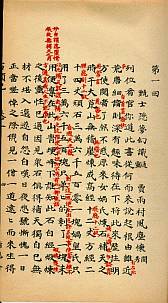
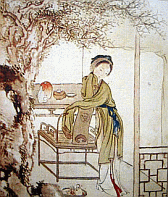
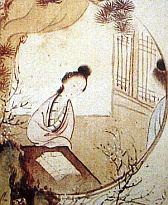
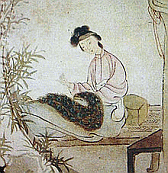
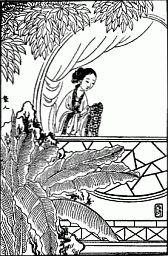
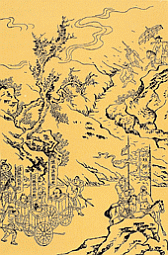
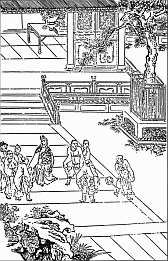
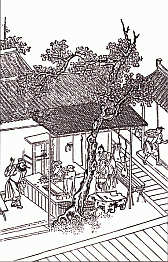
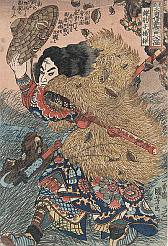
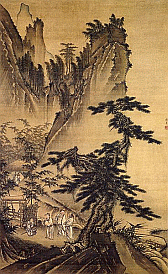
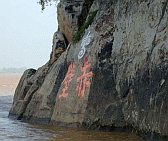
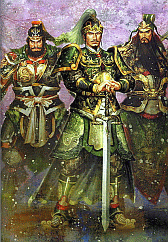
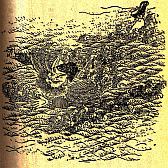
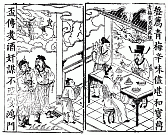
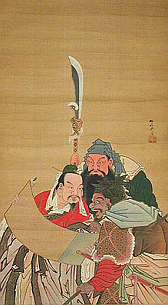
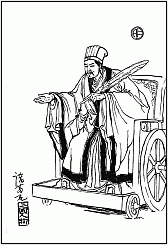

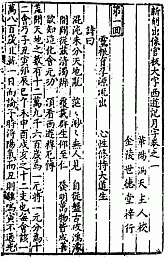

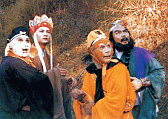
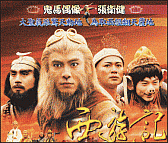
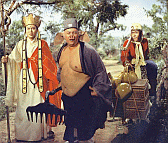
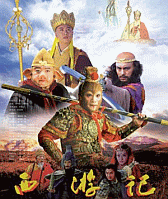
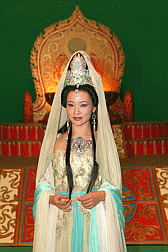
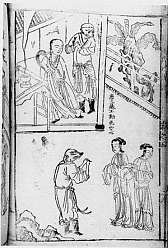
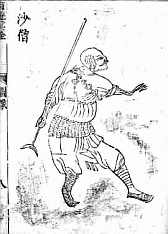
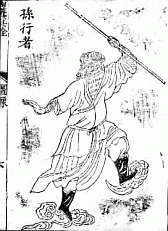
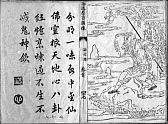
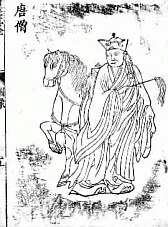
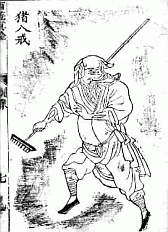
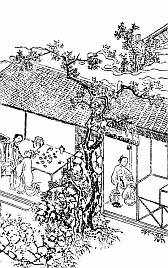
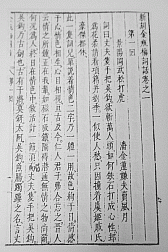
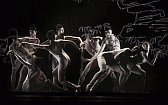
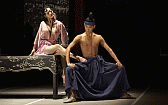
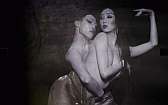
|
| Chinese Opera |
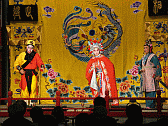
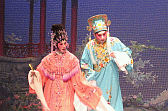
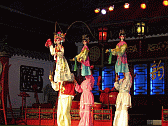
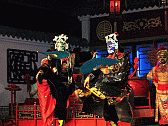
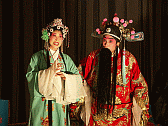
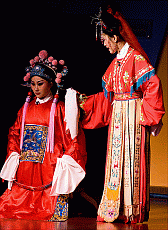
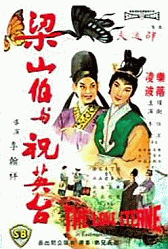
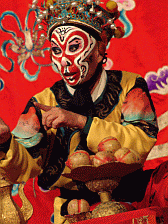
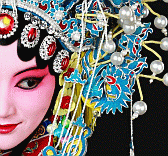
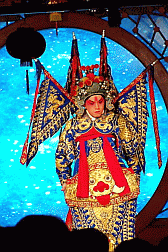
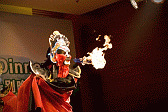

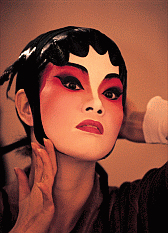
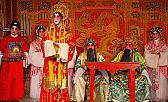
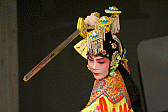
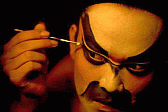
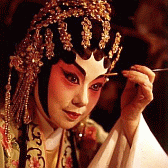
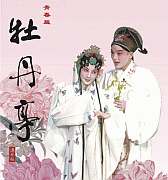
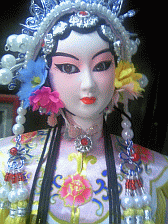
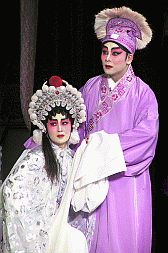
|
|